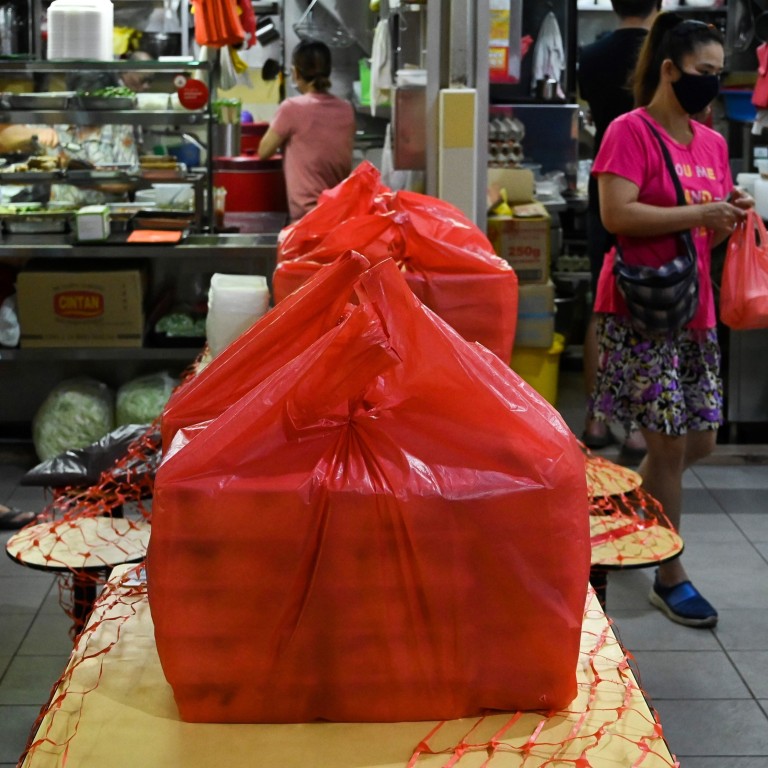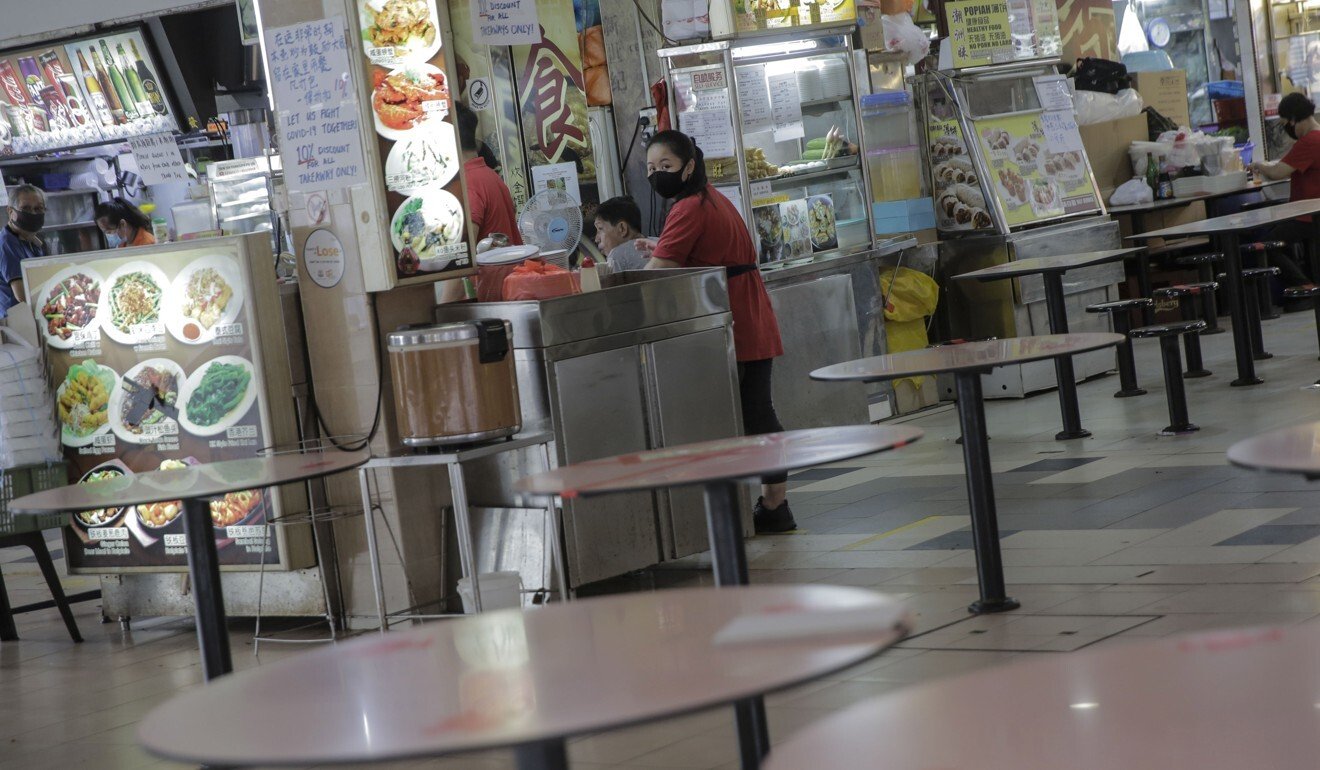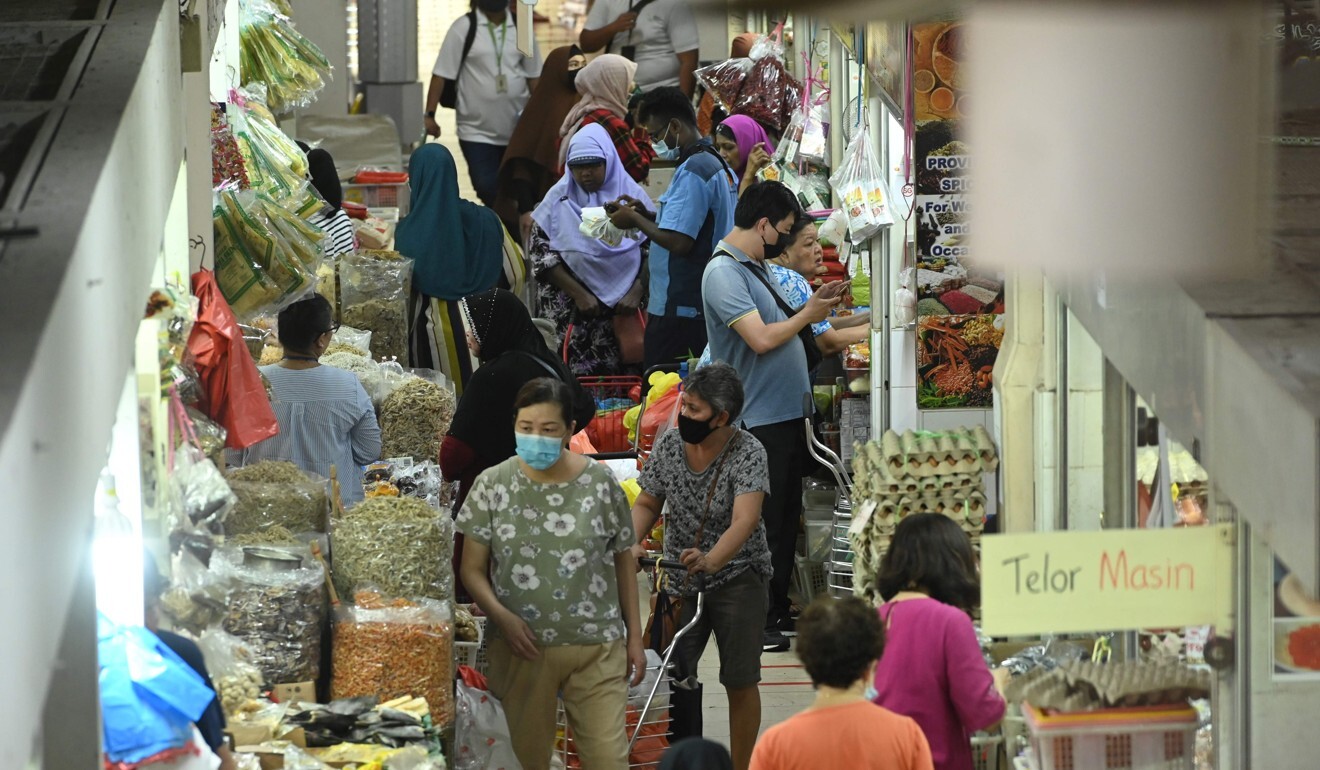
Taste of freedom: how coronavirus is changing Asia’s relationship to food
- Culinary adventures are serving as an escape for cooped-up cooks across the region
- Edible parcels spread the love in Malaysia; a brave new world beckons hawkers in Singapore; and a Thai air hostess has a new line in sun-dried pork
But that does not mean they have given up on their culinary obsessions.
In fact, going by the overnight rise in stress-baking and cooking, food may be occupying more than its usual share of head space among Malaysians, Singaporeans and Thais, as culinary adventures serve as an escape from weeks of being cooped up at home.
Beyond that, initiatives to help food vendors hit by the economic shutdowns show how the crisis may be reshaping – in a positive way – our relationships to food and the people involved in food production.
His “Hawkers United – Dabao 2020” page has amassed nearly 230,000 followers since he set it up on April 3, hours after Prime Minister Lee Hsien Loong announced a partial lockdown of the country to suppress Covid-19 infections.
The so-called circuit breaker came into force on April 7 as cases soared among the city state’s foreign workers, with total infections numbering over 5,000 on Friday, from 266 a month ago.
With dining-in banned as part of the measures, the platform gives the embattled hawkers – especially obscure ones off the radar of food-delivery apps – an opportunity to directly promote their menus to takeaway and delivery customers.
Freelance delivery drivers are also part of the mix, offering fees far cheaper than those of major delivery apps like GrabFood, Deliveroo and Foodpanda.
Singaporeans have so far lapped up the offerings, which include everything from top-grade Mao Shan Wang durians to the traditional kway chap that Chew – a rare second-generation hawker – sells at his stall in the Chinatown district.
Coronavirus: ‘HK shortage risk’ after mainland China tightens border checks
“It’s not just that they are food crazy … I think Singaporeans want to preserve this treasure that is the hawkers,” said Chew, 42, who said his revenue was down about 80 per cent without dine-ins.
“They want to save the auntie, uncle who are like family because you buy their food so often. Whether rich or poor, you go to the hawker centre for comfort food.”
Benjamin Yang, a food and beverage profit strategist, said the across-the-board “digitalisation” by hawkers was one silver lining of what was otherwise one of the worst crises faced by the city state’s economy. Yang’s website manyplaces.sg, like Chew’s Facebook page, matches customers with small food businesses.
Yang said his platform had onboarded some 300 small food businesses – for free – after the site was set up last week out of “purely altruistic” intentions to rescue struggling merchants.

OPPORTUNITY IN CRISIS
Such innovation and industry is by no means confined to Singapore.
Unlike the bigger players, the innkeeper’s app – developed by his staff – allows users to order from different establishments at one go. “We aim to support our community and we want to help small places that cannot adapt during this time,” Peangploy said.
Others in the country – home to ubiquitous street food stalls – see a glimmer of opportunity in food retail as their own industries come under pressure.
Work from home, call for meals: delivery platforms a lifeline for HK restaurants
Sasimon Chamnansarn, a flight attendant who remains employed with her airline even though flights have dried up, is one such individual. Recently Sasimon, 38, began selling sun-dried pork – based on a special recipe devised by her mother and grandmother – to friends in Bangkok, and was pleasantly surprised by rising demand.
The idea came to her after flights were suspended and she returned to her hometown of Udon Thani in the country’s northeast.
“If I go back to work, I’ll continue this business. I have contacted a local factory which can help me produce and package.
“Nothing is certain. I’m always ready for change. Who would have thought a pilot or an aircrew would one day find their job unstable?”

‘PARCELS OF LOVE’
On social media, many have been posting about their “food swaps” – where delivery drivers are utilised to send family and friends parcels of home-cooked food.
Human rights activist Firdaus Husni said her undergraduate brother – who must remain on campus while the country’s “movement control order” is in force – was among the recipients of the parcels of love she had been dishing out.
“I worry about him often. It was nice to be able to surprise him by having food delivered to his hotel,” she said.
Swapping food has become part of Malaysia’s “new normal”, said Firdaus.
One of Firdaus’ friends saw her post on social media about having a grocery delivery cancelled, and quickly picked up a selection of essentials for her, while others have sent cooked food.
“I mentioned to friends that I missed having crab rasam [a tamarind-based soupy Tamil dish], and one made and delivered it still nice and warm,” said the activist, 34, adding that she had also received home-made curry laksa and nasi lemak – traditional Malaysian dishes.
“The thoughtful gestures and effort they must have put into preparing and making the delivery make me feel very thankful … Social distancing does not mean that we shouldn’t stay in contact with our family and friends,” she said.
Yudistra Darma Dorai, a Kuala Lumpur-based lawyer, said food had become a “form of communicating” in his circles while the lockdown – scheduled to end on April 28 – was in force. The lawyer said his friends, made aware of his decision to bring his elderly mother to stay with him during the lockdown, sent him home-cooked food so that he was not overtaxed working and preparing meals.
Redzuawan Ismail, a celebrity chef also known as “Chef Wan” who has an Anthony Bourdain-type of reputation in Malaysia and Singapore, said he expected sweeping changes in eating habits when lockdowns were lifted.
While people would probably slowly go back to eating out, many would come out of the experience having a more favourable view of home-cooked food and dining at home, the chef said.
“A lot of people’s usual eating habits are going to change for sure,” Ismail said.
“People are going to be more careful now – what goes on the plate, who sits next to them – and they will take some time to regain confidence,” he said. “Many will likely become more ready to entertain in their own homes, eat with their families, and allow those they’re comfortable with to visit for meals. Home delivery and takeaway will become more popular.” ■
Additional reporting by Jitsiree Thongnoi


